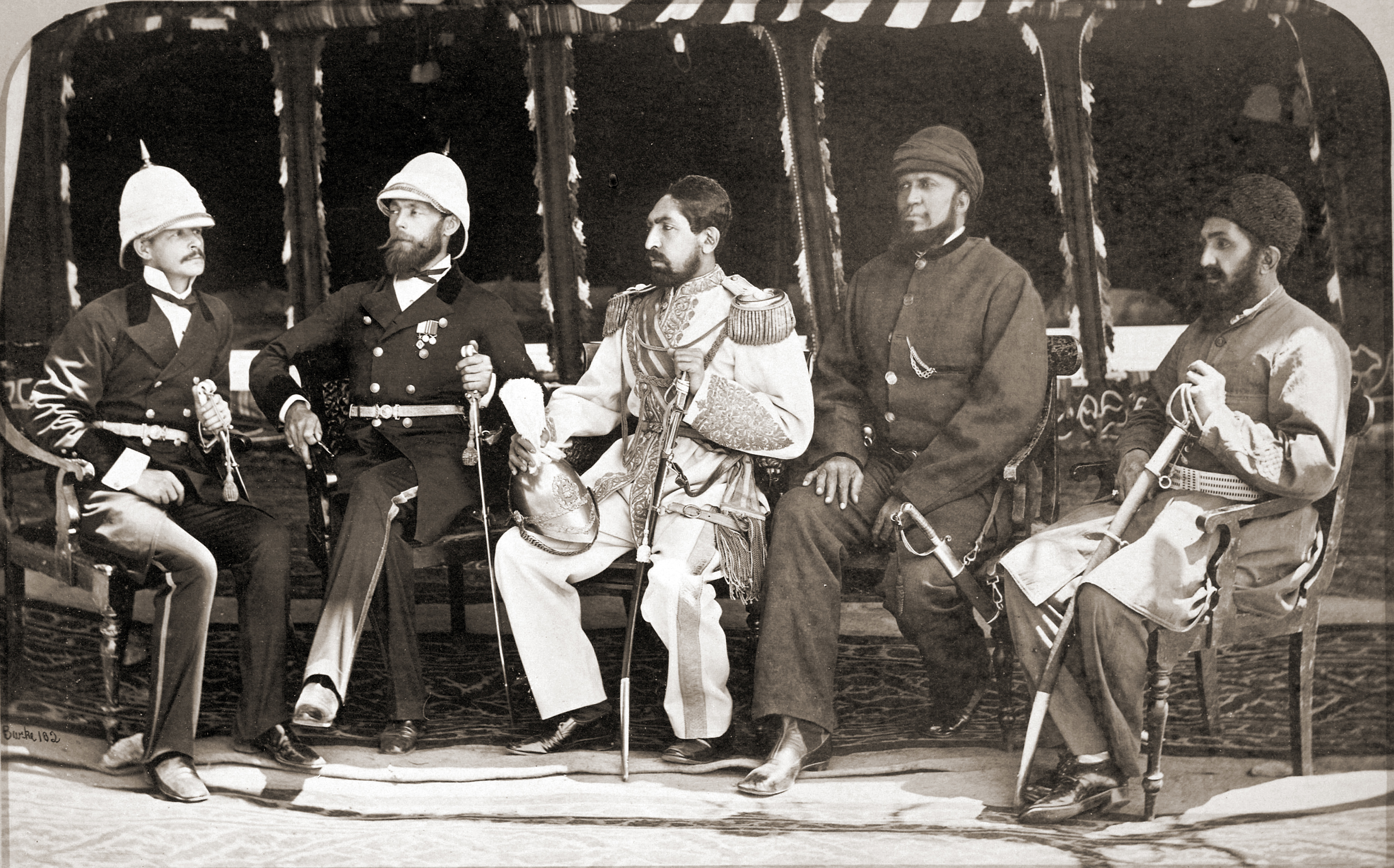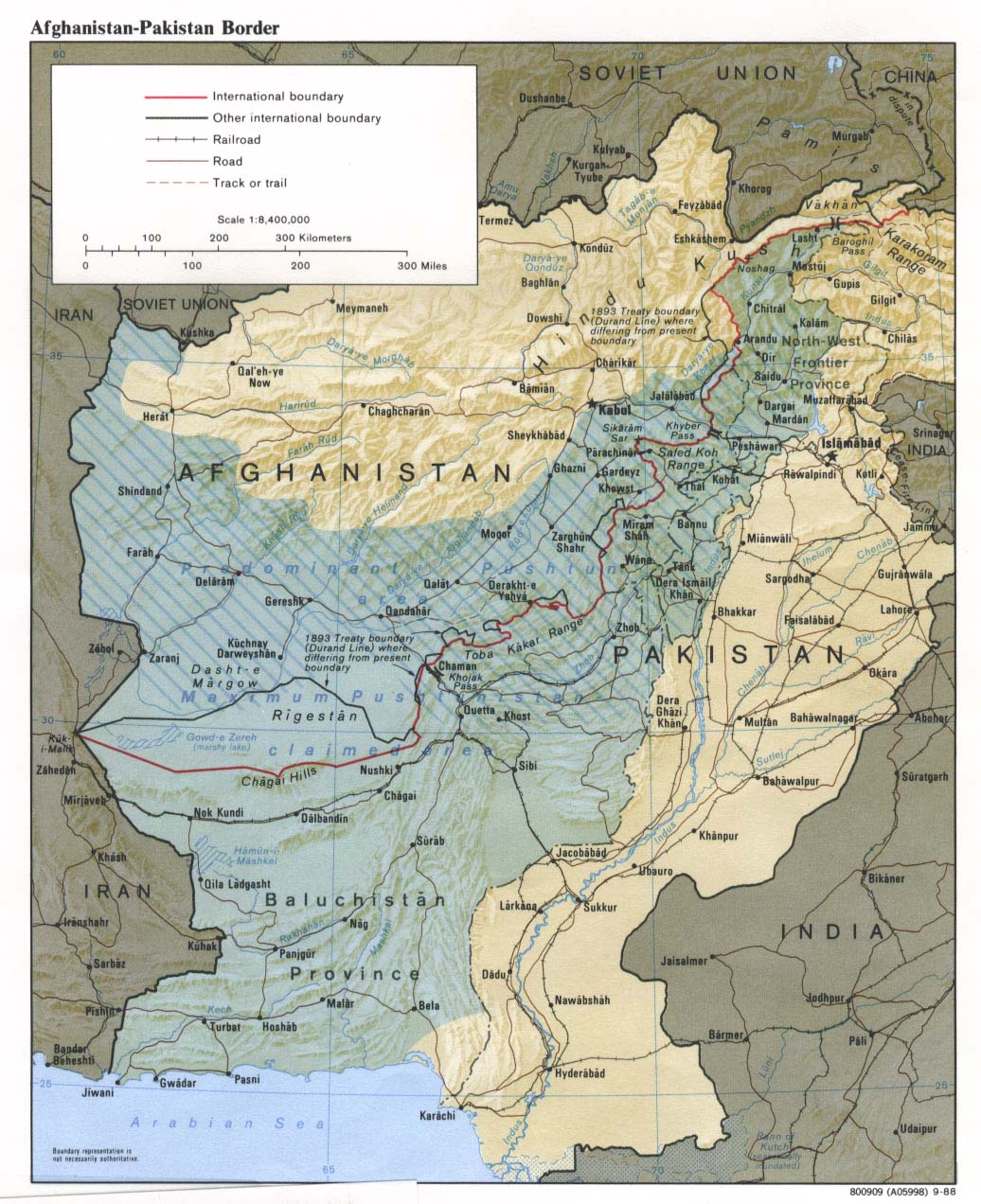Treaty of Gandamak on:
[Wikipedia]
[Google]
[Amazon]
 The Treaty of Gandamak (
The Treaty of Gandamak ( It was signed on 26May 1879 by
It was signed on 26May 1879 by
Treaty of Gandomak by Muhammad Jamil Hanifi
at Khyber.ORG {{DEFAULTSORT:Treaty of Gandamak
 The Treaty of Gandamak (
The Treaty of Gandamak (Dari
Dari (, , ), also known as Dari Persian (, ), is the variety of the Persian language spoken in Afghanistan. Dari is the term officially recognised and promoted since 1964 by the Afghan government for the Persian language,Lazard, G.Darī ...
: معاهده گندمک, Pashto
Pashto (,; , ) is an Eastern Iranian language in the Indo-European language family. It is known in historical Persian literature as Afghani ().
Spoken as a native language mostly by ethnic Pashtuns, it is one of the two official langua ...
: د گندمک تړون) officially ended the first phase of the Second Anglo-Afghan War
The Second Anglo-Afghan War (Dari: جنگ دوم افغان و انگلیس, ps, د افغان-انګرېز دويمه جګړه) was a military conflict fought between the British Raj and the Emirate of Afghanistan from 1878 to 1880, when the l ...
. Mohammad Yaqub Khan ceded various frontier areas to Britain while retaining full control of Afghanistan's foreign affairs.
 It was signed on 26May 1879 by
It was signed on 26May 1879 by King
King is the title given to a male monarch in a variety of contexts. The female equivalent is queen regnant, queen, which title is also given to the queen consort, consort of a king.
*In the context of prehistory, antiquity and contempora ...
Mohammad Yaqub Khan of Afghanistan and Sir Louis Cavagnari of British's Government of India
The Government of India ( ISO: ; often abbreviated as GoI), known as the Union Government or Central Government but often simply as the Centre, is the national government of the Republic of India, a federal democracy located in South Asia, ...
at a British army camp near the village of Gandamak
Gandamak is a village of Afghanistan located between Kabul and Jalalabad, from Jalalabad on the old road to Kabul.
History
During the retreat from Kabul of General Elphinstone's army in 1842, a hill near Gandamak was the scene of the Battle of ...
, about east of Kabul. The treaty was ratified by Lord Edward Robert Bulwer Lytton, Viceroy of India
The Governor-General of India (1773–1950, from 1858 to 1947 the Viceroy and Governor-General of India, commonly shortened to Viceroy of India) was the representative of the monarch of the United Kingdom and after Indian independence in 19 ...
, on 30 May 1879.
Most historical writings consider the Treaty of Gandamak as the prelude to the second phase of the Second Anglo-Afghan War
The Second Anglo-Afghan War (Dari: جنگ دوم افغان و انگلیس, ps, د افغان-انګرېز دويمه جګړه) was a military conflict fought between the British Raj and the Emirate of Afghanistan from 1878 to 1880, when the l ...
, 1879–1880. As result of the British victory at the Battle of Kandahar in 1880 the treaty was reaffirmed and the British appointed Abdur Rahman
Abd al-Rahman ( ar, عبد الرحمن, translit=ʿAbd al-Raḥmān or occasionally ; DMG ''ʿAbd ar-Raḥman''; also Abdul Rahman) is a male Arabic Muslim given name, and in modern usage, surname. It is built from the Arabic words '' Abd'', '' ...
as Emir.
Background
On 22 July 1878, a Russian delegation arrived in Kabul without the explicit invitation of AmirSher Ali Khan
Sher Ali Khan (); c. 1825 – 21 February 1879) was Amir of Afghanistan from 1863 to 1866 and from 1868 until his death in 1879. He was one of the sons of Dost Mohammed Khan, founder of the Barakzai dynasty in Afghanistan.
Life
Sher Ali Khan ...
. In early August 1878 to counteract the Russian initiative, the British informed the Amir that he must receive a special mission that included members of other European states "with all becoming honors."
The mission was denied entry into Afghanistan at a military post commanded by Ali Masjid in the Khyber pass on 21 September. In retaliation, the British Government of India issued an ultimatum that by 20 November 1878 the Amir must apologize for the effrontery and provide a satisfactory explanation. Sher Ali's response of 19 November 1878, delayed by his own son and heir apparent's death on 17 August, did not reach the Viceroy until 30 November, and lacked an apology.
On 21 November the British Raj declared war on Afghanistan, occupied the Korram valley and the Paywar pass, and moved its armed forces via the Khyber pass
The Khyber Pass (خیبر درہ) is a mountain pass in the Khyber Pakhtunkhwa province of Pakistan, on the border with the Nangarhar Province of Afghanistan. It connects the town of Landi Kotal to the Valley of Peshawar at Jamrud by traversing p ...
and Quetta towards Jalalabad
Jalalabad (; Dari/ ps, جلالآباد, ) is the fifth-largest city of Afghanistan. It has a population of about 356,274, and serves as the capital of Nangarhar Province in the eastern part of the country, about from the capital Kabul. Jala ...
and Qandahar
Kandahar (; Kandahār, , Qandahār) is a city in Afghanistan, located in the south of the country on the Arghandab River, at an elevation of . It is Afghanistan's second largest city after Kabul, with a population of about 614,118. It is the ca ...
, respectively. Unable to offer effective military resistance, on 23 December 1878, the Amir left Kabul
Kabul (; ps, , ; , ) is the capital and largest city of Afghanistan. Located in the eastern half of the country, it is also a municipality, forming part of the Kabul Province; it is administratively divided into #Districts, 22 municipal dist ...
for Turkestan
Turkestan, also spelled Turkistan ( fa, ترکستان, Torkestân, lit=Land of the Turks), is a historical region in Central Asia corresponding to the regions of Transoxiana and Xinjiang.
Overview
Known as Turan to the Persians, western Turk ...
, intending to seek Russian aid for the defence of his domains. Sher Ali died on 21 February 1879 near Balkh
), named for its green-tiled ''Gonbad'' ( prs, گُنبَد, dome), in July 2001
, pushpin_map=Afghanistan#Bactria#West Asia
, pushpin_relief=yes
, pushpin_label_position=bottom
, pushpin_mapsize=300
, pushpin_map_caption=Location in Afghanistan ...
and his son, Mohammad Yaqub Khan, declared himself Emir of Afghanistan. On 26 May 1879, after preliminary correspondence with Cavagnari prior to the British withdrawal from most occupied Afghan territories, Muhammad Yaqub's request for permission to visit the British military camp was accepted, and so he proceeded there to sign the Treaty of Gandamak, considered one of the most humiliating ever accepted by an Afghan ruler, essentially making the Afghan Amir a feudatory of the British Crown.D. P. Singhal, India and Afghanistan: A Study in Diplomatic Relations, 1876-1907, New Delhi, 1982, p. 45
Settlements
"His Highness the Amir of Afghanistan and its depen-dencies engages, on the exchange of the ratifications of this Treaty, to publish a full and complete amnesty, absolving all his subjects from any responsibility for intercourse with the British forces during the war, and to guarantee and protect all persons of whatever degree from any punishment or molestation on that account. His Highness the Amir of Afghanistan and its depen-dencies agrees to conduct his relations with Foreign States in accordance with the advice and wishes of the British Government. His Highness the Amir will enter into no engagements with Foreign States, and will not take up arms against any Foreign State, except with the concurrence of the British Government. On these conditions the British Government will support the Amir against any foreign aggression with money, arms, or troops, to be employed in whatsoever manner the British Government may judge best for this purpose. Should British troops at any time enter Afghanistan for the purpose of repelling foreign aggression, they will return to their stations in British territory as soon as the object for which they entered has been accomplished." —''First section of the treaty''Treaty of Gandamak s:Treaty of GandamakUnder the provisions of the treaty the Amir surrendered control over Afghani foreign relations policy and allowed for a British Mission, with European members, to reside in Kabul. Jurisdiction over the Korram and Pishin valleys, the Sibi district, and the Khybar pass were transferred to the British. The treaty provided for increased commercial contacts and the establishment of a telegraph line between Kabul and British India. Mohammad Yaqub Khan was to issue amnesty to all those who had collaborated with the British occupying forces. The British Mission led by Cavagnari arrived in Kabul on 24 July 1879, but less than two months later Cavagnari and all members of his Mission were massacred when on 3 September 1879 a dissatisfied regiment of the Amir's army from
Herat
Herāt (; Persian: ) is an oasis city and the third-largest city of Afghanistan. In 2020, it had an estimated population of 574,276, and serves as the capital of Herat Province, situated south of the Paropamisus Mountains (''Selseleh-ye Safē ...
stormed the mission compound.
The massacre set the stage for another British invasion of Afghanistan and the expulsion of Mohammad Yaqub Khan to India. It culminated in the British appointment of Abdur Rahman
Abd al-Rahman ( ar, عبد الرحمن, translit=ʿAbd al-Raḥmān or occasionally ; DMG ''ʿAbd ar-Raḥman''; also Abdul Rahman) is a male Arabic Muslim given name, and in modern usage, surname. It is built from the Arabic words '' Abd'', '' ...
(ruled 22 July 1880 – 1 October 1901), a patrilateral cousin of Yaqub, as Amir of Afghanistan. Abdur Rahman accepted the provisions of the Treaty of Gandamak - with the modification that the British agent and his staff in Kabul would be classed as Indian Muslims.
See also
* Anglo-Afghan Treaty of 1919 *European influence in Afghanistan
European influence in Afghanistan has been present in the country since the Victorian era, when the competing imperial powers of Britain and Russia contested for control over Afghanistan as part of the Great Game.
Rise of Dost Mohammad Khan
...
* Imperialism in Asia
References
Sources
* * * * * * * * * *External links
Treaty of Gandomak by Muhammad Jamil Hanifi
at Khyber.ORG {{DEFAULTSORT:Treaty of Gandamak
Gandamak
Gandamak is a village of Afghanistan located between Kabul and Jalalabad, from Jalalabad on the old road to Kabul.
History
During the retreat from Kabul of General Elphinstone's army in 1842, a hill near Gandamak was the scene of the Battle of ...
Gandamak
Gandamak is a village of Afghanistan located between Kabul and Jalalabad, from Jalalabad on the old road to Kabul.
History
During the retreat from Kabul of General Elphinstone's army in 1842, a hill near Gandamak was the scene of the Battle of ...
Gandamak
Gandamak is a village of Afghanistan located between Kabul and Jalalabad, from Jalalabad on the old road to Kabul.
History
During the retreat from Kabul of General Elphinstone's army in 1842, a hill near Gandamak was the scene of the Battle of ...
1879 in Afghanistan
1879 in the British Empire
1870s in British India
Second Anglo-Afghan War
History of Pakistan